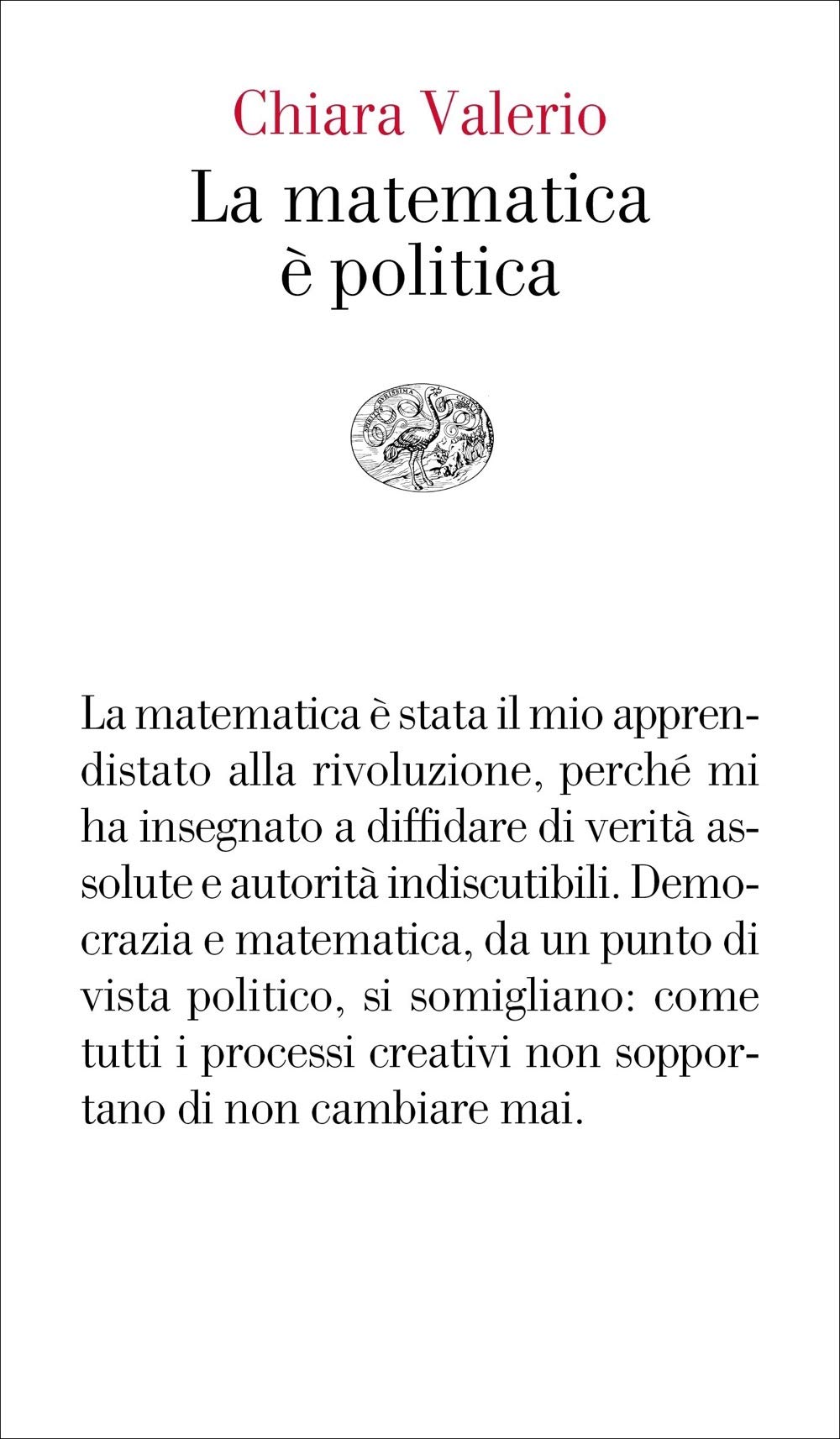Mathematics as the study of relationships: in this aspect lies the similarity and affinity with politics. And then the need in both cases to proceed with stubbornness and trust, without fearing error which, as in all difficult things, is not only lying in wait but inherent, and often, when it is discovered, it is the stimulus and engine of new successes and goals. Hence the need to respect rules and (not or, mind you) the compelling need for revolutions. The parallel narration of the author’s life and the change, over the years, of her own beliefs and points of view, makes this short essay more credible and streamlines the story.
Mathematics was my apprenticeship to revolution because it taught me to distrust absolute truths and unquestionable authorities. Democracy and mathematics, from a political point of view, are similar: like all creative processes, they can’t stand remaining unchanged.
 Not a book for everyone, perhaps, but suitable to those who like to think and
be challenged with ideas. Background theme to which I am susceptible: the
necessity for school to illuminate our existences. I wouldn’t say I liked the
frequent references to contingent situations in Italian politics. I bought an
short essay on the interconnections between mathematics and politics; I expect
it to make me fly high, far away from the quarrels and events of daily
politics. Also, sometimes the similarities between the two fields seem a bit
too far fetched.
Not a book for everyone, perhaps, but suitable to those who like to think and
be challenged with ideas. Background theme to which I am susceptible: the
necessity for school to illuminate our existences. I wouldn’t say I liked the
frequent references to contingent situations in Italian politics. I bought an
short essay on the interconnections between mathematics and politics; I expect
it to make me fly high, far away from the quarrels and events of daily
politics. Also, sometimes the similarities between the two fields seem a bit
too far fetched.
I don’t think this book is currently available in English. I read it in the original Italian edition.